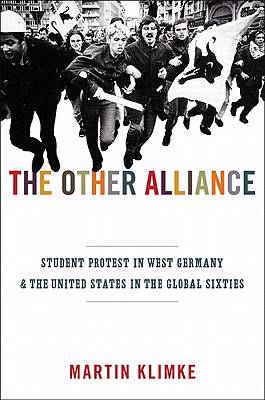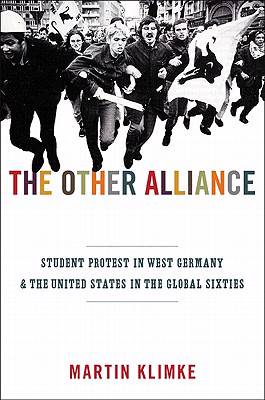
- Retrait gratuit dans votre magasin Club
- 7.000.000 titres dans notre catalogue
- Payer en toute sécurité
- Toujours un magasin près de chez vous
- Retrait gratuit dans votre magasin Club
- 7.000.0000 titres dans notre catalogue
- Payer en toute sécurité
- Toujours un magasin près de chez vous
The Other Alliance
Student Protest in West Germany and the United States in the Global Sixties
Martin Klimke
56,45 €
+ 112 points
Description
Using previously classified documents and original interviews, The Other Alliance examines the channels of cooperation between American and West German student movements throughout the 1960s and early 1970s, and the reactions these relationships provoked from the U.S. government. Revising the standard narratives of American and West German social mobilization, Martin Klimke demonstrates the strong transnational connections between New Left groups on both sides of the Atlantic.
Klimke shows that the cold war partnership of the American and German governments was mirrored by a coalition of rebelling counterelites, whose common political origins and opposition to the Vietnam War played a vital role in generating dissent in the United States and Europe. American protest techniques such as the "sit-in" or "teach-in" became crucial components of the main organization driving student activism in West Germany--the German Socialist Student League--and motivated American and German student activists to construct networks against global imperialism. Klimke traces the impact that Black Power and Germany's unresolved National Socialist past had on the German student movement; he investigates how U.S. government agencies, such as the State Department's Interagency Youth Committee, advised American policymakers on confrontations with student unrest abroad; and he highlights the challenges student protesters posed to cold war alliances. Exploring the catalysts of cross-pollination between student protest movements on two continents, The Other Alliance is a pioneering work of transnational history.Spécifications
Parties prenantes
- Auteur(s) :
- Editeur:
Contenu
- Nombre de pages :
- 368
- Langue:
- Anglais
- Collection :
- Tome:
- n° 7
Caractéristiques
- EAN:
- 9780691152462
- Date de parution :
- 04-09-11
- Format:
- Livre broché
- Format numérique:
- Trade paperback (VS)
- Dimensions :
- 163 mm x 231 mm
- Poids :
- 521 g

Les avis
Nous publions uniquement les avis qui respectent les conditions requises. Consultez nos conditions pour les avis.






